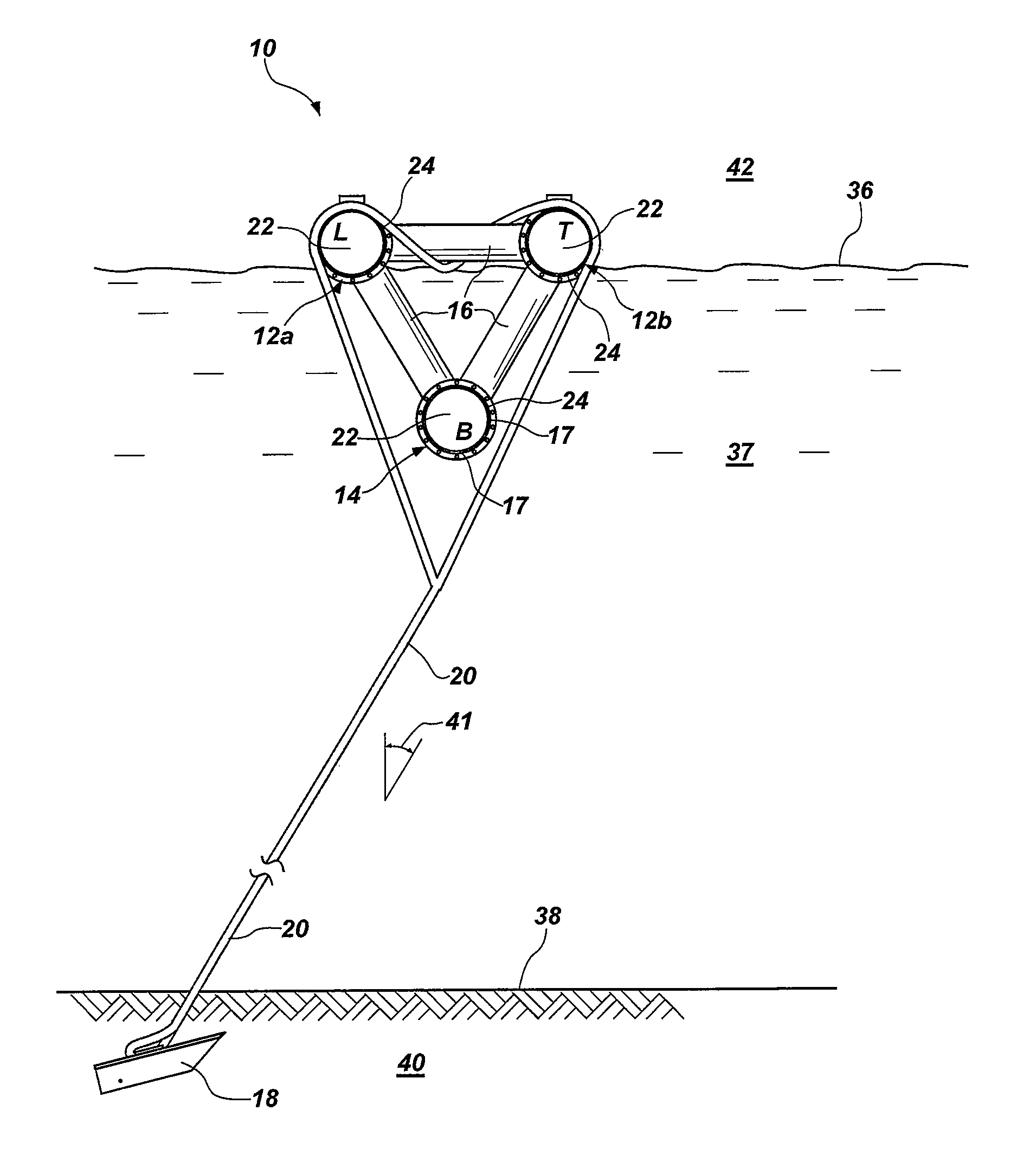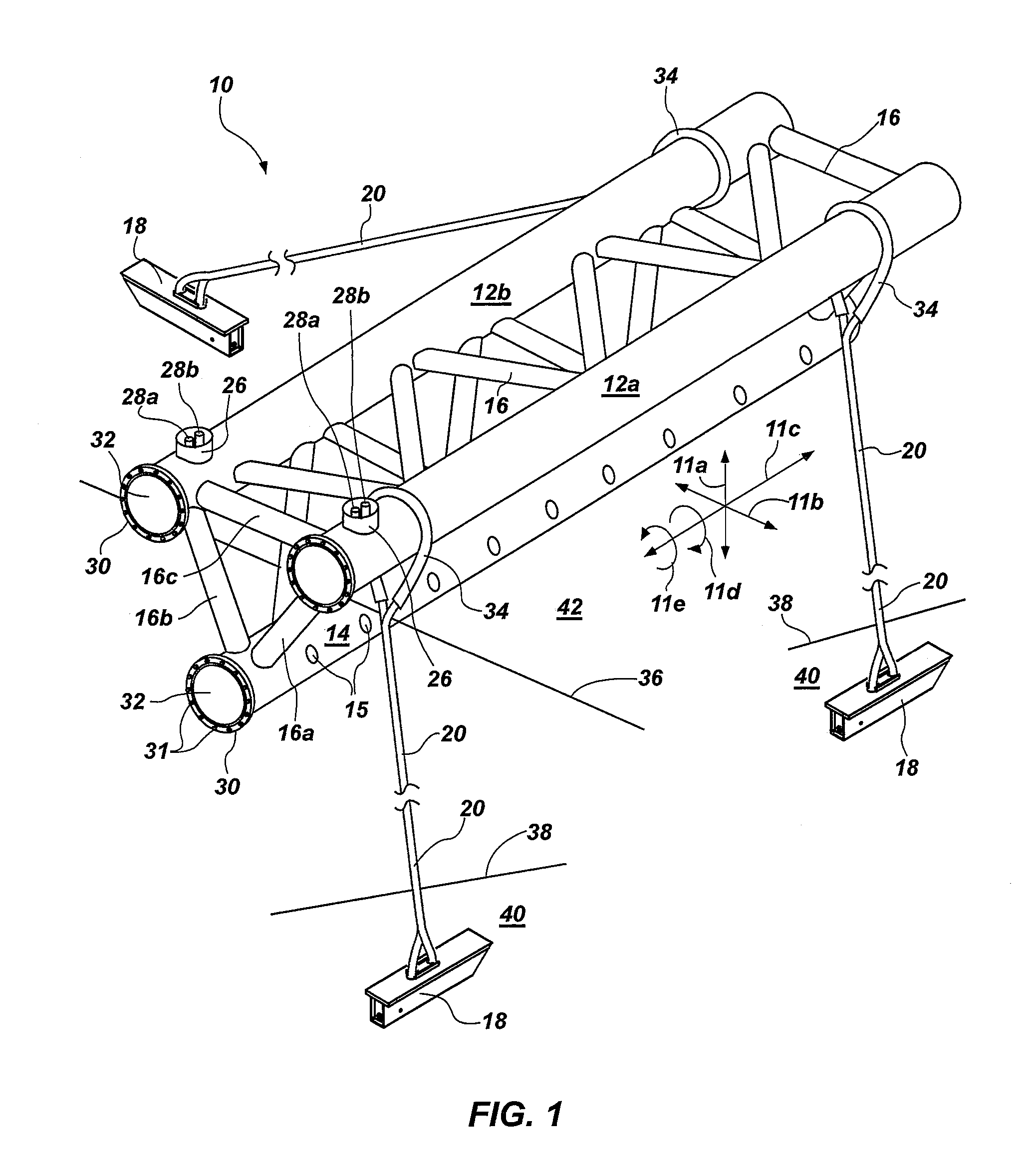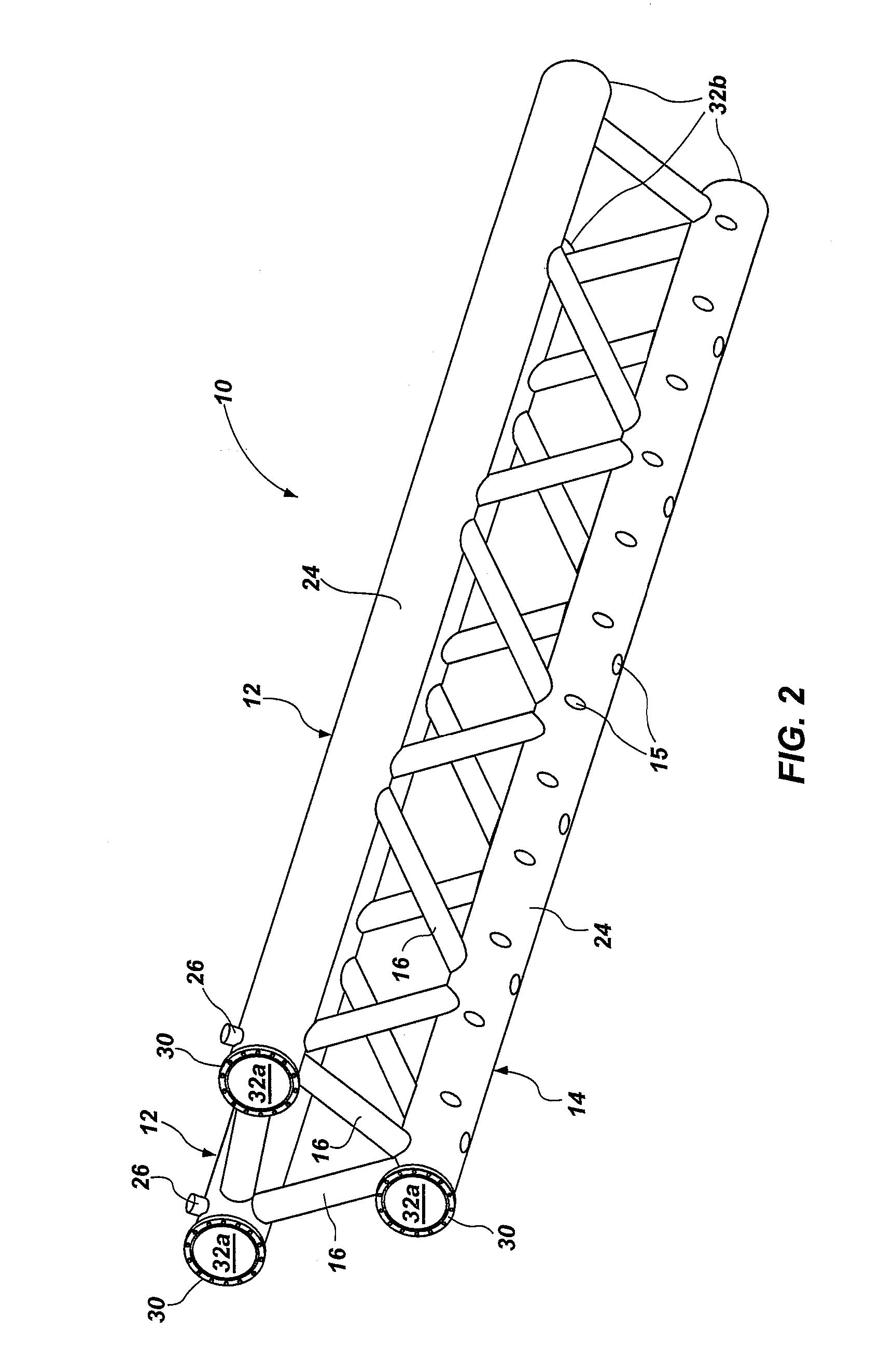Wave attenuation system and method
a wave attenuation and wave technology, applied in the field of breakwater systems, can solve problems such as redirection and dissipation of energy and momentum
- Summary
- Abstract
- Description
- Claims
- Application Information
AI Technical Summary
Benefits of technology
Problems solved by technology
Method used
Image
Examples
example i
[0128]A wave attenuator 10 was constructed with a six foot surface width by eight foot depth. Making the wave attenuator to have a six foot width did not allow for effective diagonal bracing. Therefore, the surface braces were parallel to the wave coming in. The system worked very well.
[0129]The ports 28 were added to add or remove (as required) water to the upper tubes 12. In the summer water was added to lower the attenuator 10 and make it more massive (added weight of water) and less visible. In the winter water was pumped out, raising the attenuator 10, making it more buoyant. Two one a half inch diameter pipes were welded into the 24 inch tube 12 (one pipe 29 was 23 inches, the other very short). Air blown into the short pipe (at five psi or less) forced water out through the long pipe 29. Flotation (buoyancy) can be infinitely adjusted.
example ii
[0130]A wave attenuator 10 (of 100 foot length) had an eight foot width across adjacent main float tubes 12 with diagonal, cross-bracing struts 16 worked well, an improvement over the six foot width with struts 16 running straight between.
example iii
[0131]Combining the wave attenuator 10 with a dock float system, was tested at a wave testing facility with scaled prototypes for testing. When hooked to pilings or other docks to reduce rocking the wave attenuator system 10 did not function satisfactorily. The attenuator 10 needs to move in response the wave 44.
PUM
 Login to View More
Login to View More Abstract
Description
Claims
Application Information
 Login to View More
Login to View More - R&D
- Intellectual Property
- Life Sciences
- Materials
- Tech Scout
- Unparalleled Data Quality
- Higher Quality Content
- 60% Fewer Hallucinations
Browse by: Latest US Patents, China's latest patents, Technical Efficacy Thesaurus, Application Domain, Technology Topic, Popular Technical Reports.
© 2025 PatSnap. All rights reserved.Legal|Privacy policy|Modern Slavery Act Transparency Statement|Sitemap|About US| Contact US: help@patsnap.com



